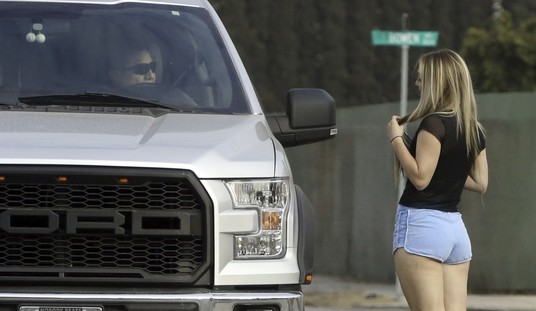The Washington Post has taken to talking about how “democracy dies in darkness” and referring to Donald Trump as an authoritarian bully, among other terms of endearment. Do you want to see an example of how democracy actually dies? Look no further than Turkey.
The Tyrant of Turkey, Recep Tayyip Erdogan, has already been chipping away at the pillars of what was once one of the most promising young democracies in that part of the world. Human rights abuses are rampant and he imprisons his political enemies at the drop of a hat based on nothing more than gauzy suggestions that they are somehow in league with exiled cleric Fethullah Gulen. But up until now, Erdogan has at least attempted to keep the appearance of democracy in place while rewriting the constitution and consolidating all power in his own hands. That appears to have changed this month.
As the LA Times reported earlier this week, Turkey is in the midst of a legitimate constitutional crisis. Their highest court recently ordered the release of two journalists imprisoned by Erdogan, pending their trial dates. But the lower courts which would have to implement the order (and are packed with judges who either support Erdogan or fear to cross him) have refused to comply and the journalists remain behind bars.
The standoff began on Jan. 11, when Turkey’s Constitutional Court ruled 11-6 that two journalists being tried by lower courts on charges of terrorism for links to a 2016 coup attempt must be released from prison pending a verdict. But four separate lower courts have refused to comply.
“The lower court rulings are shocking,” said Nate Schenkkan, a project director with Freedom House, a Washington, D.C.,-based watchdog organization. “Once the top court has issued a ruling, it has to be obeyed, there is no way around it. If the government wants to change the constitution, it can do that, but this is not the case. This is just a lower court saying, ‘You are superior, but we think you are wrong.’ ”
The case at the center of the controversy involves Şahin Alpay, a political science professor, and Mehmet Altan, an economist, both columnists at leading newspapers. They were detained in July 2016, accused of ties to Fetuhallah Gulen, the cleric blamed for the failed coup attempt that killed 250 people.
Here are the two most remarkable features of this story. First, it’s actually amazing that the court found the spine to stand up to Erdogan and order the release of the reporters. They’ve surely seen how he deals with his enemies and must realize that their careers, if not their freedom or even their lives would be in jeopardy if they crossed him. But then, perhaps they were betting that even Erdogan wouldn’t dare take down the justices on the highest court in the land.
That may turn out to be a foolish wager because Erdogan clearly fears nothing in the way of reprisals. We see evidence of this in the second amazing aspect of this tale. There is only one high court in Turkey, just like in the United States. And, at least in theory, there is nobody in the legislative or executive branches of their government with the power to naysay them. But now they’ve delivered an order and no less than four inferior courts, doubtless acting on the orders of Erdogan, are simply defying them. If that happened in the United States after the Supreme Court ruled on something our entire democracy would be hanging by a thread.
Probably the closest we’ve ever come to such a sorry state were a few instances where state executives tried to defy the Supremes. One example was when Arkansas Governor Orval Faubus sent the National Guard to stop African American students from enrolling at Central High School in Little Rock. The move was in response to the Supreme Court decision in Brown v. Topeka, ending school segregation. That situation let to riots and it didn’t end until Eisenhower put the state’s National Guard under federal control and topped it off by sending paratroopers from the 101st Airborne in to restore order.
So how is this crisis in Turkey going to end? At this point, Erodgan is acting so much like Nicolas Maduro in Venezuela that I wouldn’t put it past him to dismiss the high court justices and appoint new ones more to his liking. But even if he doesn’t, all he really has to do is hold firm and ignore them. Which brings us back to the original premise of the article I mentioned at the top. How does democracy actually die? You’re watching it happen before your eyes in Turkey.








Join the conversation as a VIP Member